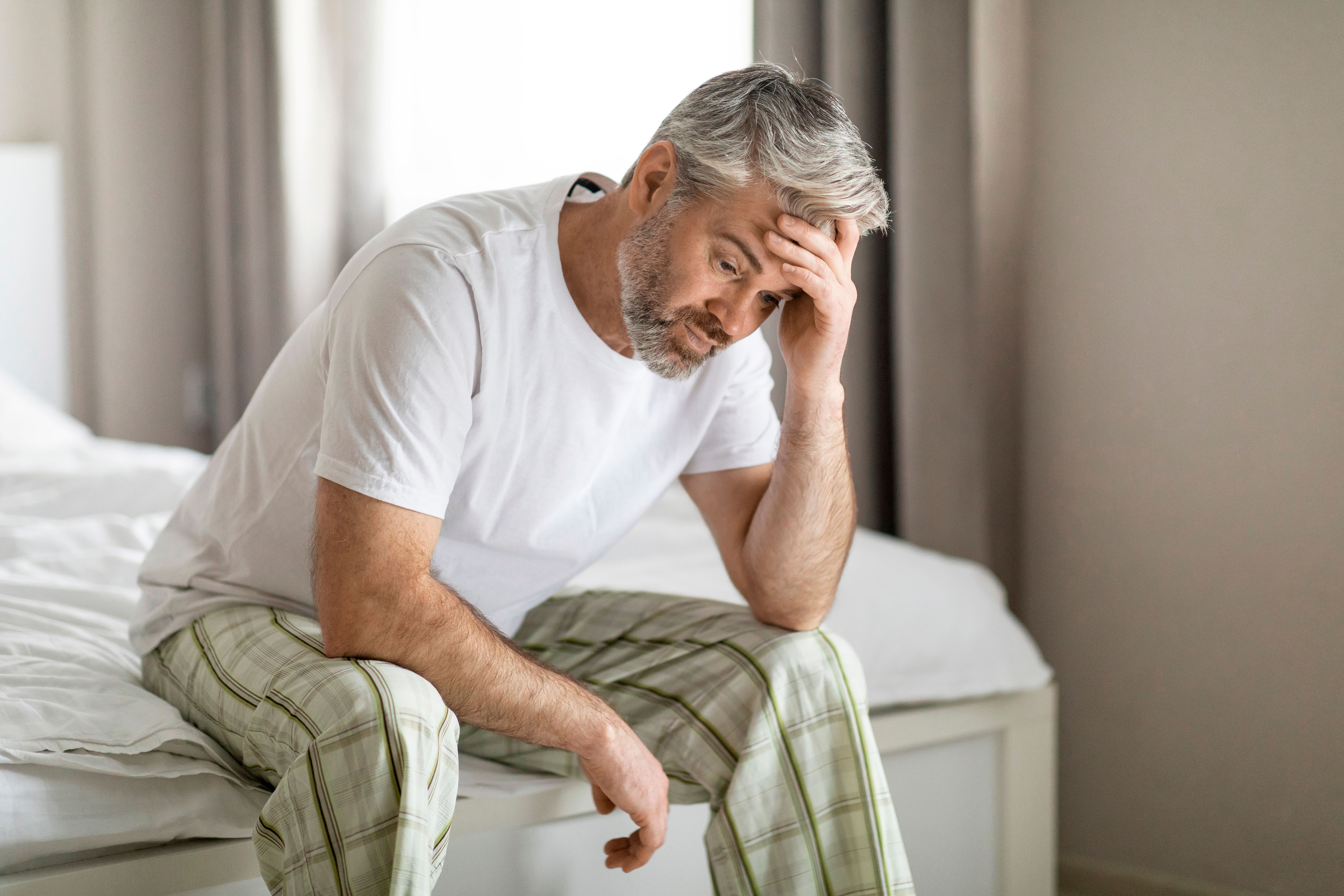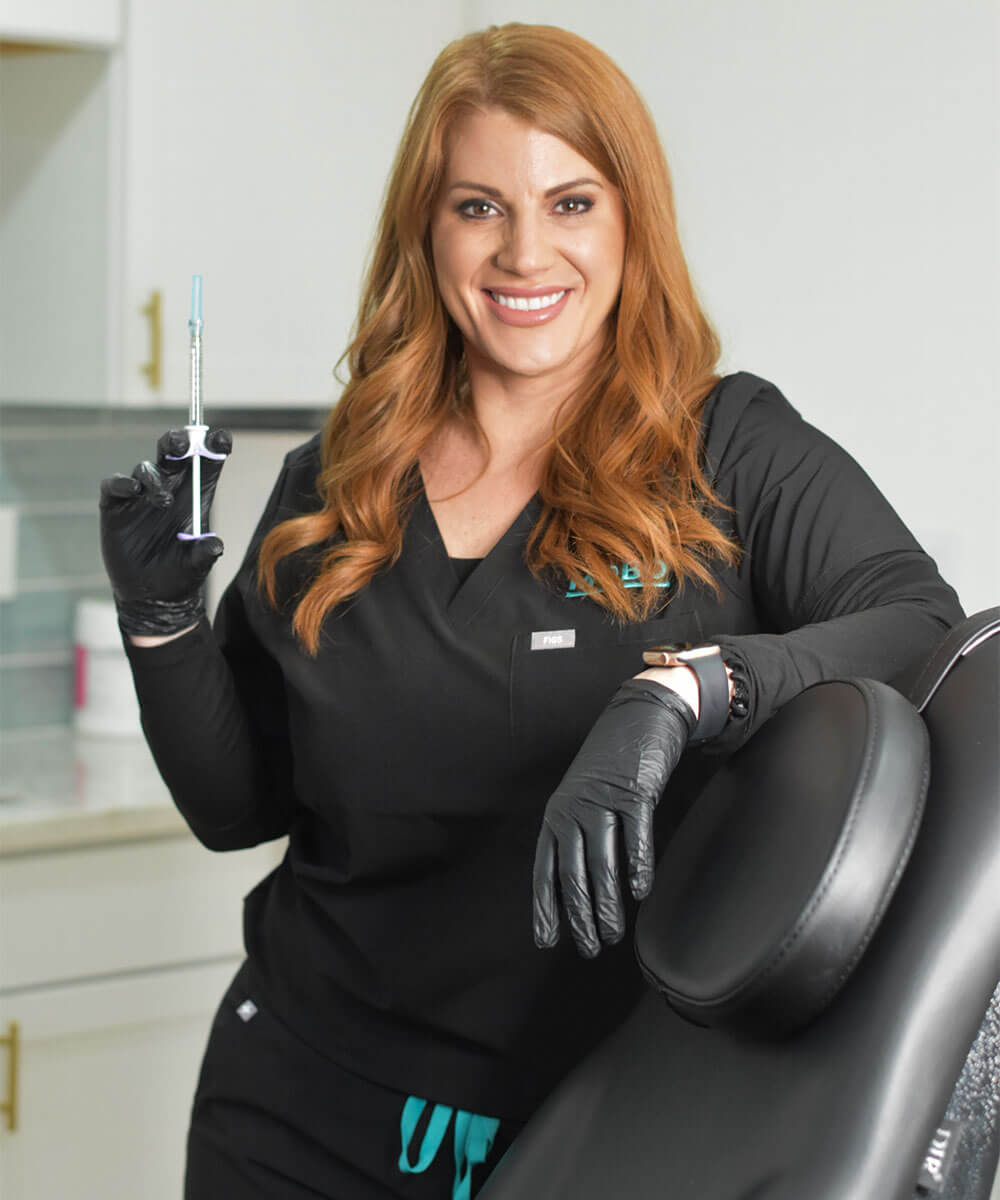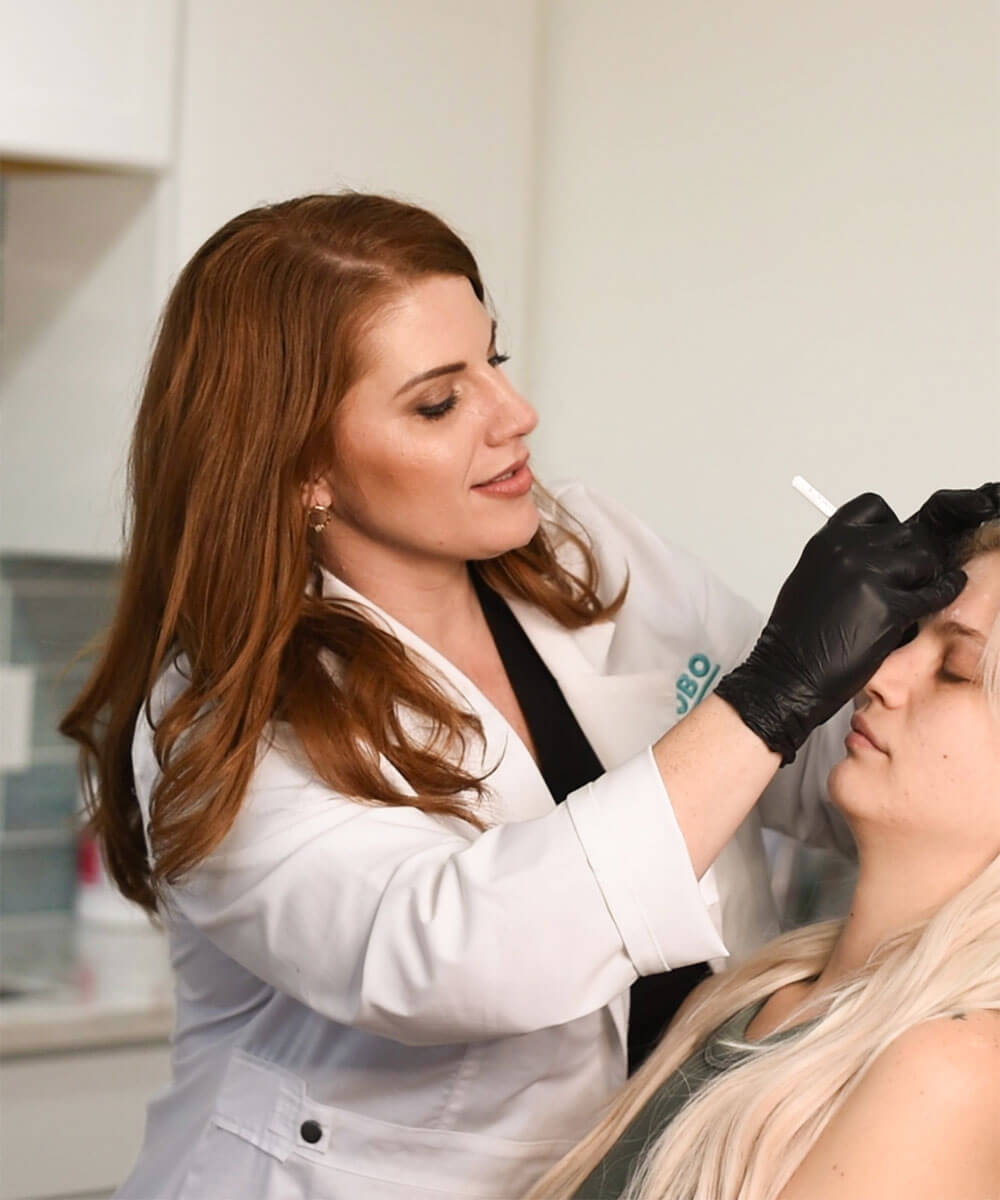
Last Updated: 03/14/2025
Written by: Lauren Lund, APRN-CNP
Reviewed by Laurianne Scot, DO
Understanding the Signs and Symptoms of Low Testosterone
As men age, many experience a range of physical and emotional changes that are part of a natural process. One of the most significant changes is the gradual decline in testosterone levels, which can lead to a condition known as andropause. Often referred to as "male menopause," andropause can result in a number of symptoms that affect both the body and mind. Understanding these symptoms is crucial for men seeking to manage their health during this phase of life.
In this blog post, we will explore the most common signs and symptoms of andropause and offer some insights into managing low testosterone.
What Is Testosterone + Why is it Important?
Testosterone is a hormone that plays a key role in many functions in the male body, including:
- Muscle mass and strength
- Bone density
- Libido (sex drive)
- Mood regulation
- Metabolic Function, including weight
Testosterone levels typically peak in early adulthood, usually in the late teens to early twenties, and then begin to gradually decline, at a rate of about 1% per year, starting around the age of 30. While this decline is a normal part of aging, some men experience symptoms that indicate their testosterone levels have dropped significantly below the normal range, leading to andropause.
Common Signs and Symptoms of Low Testosterone
While every men’s experience with low testosterone can be unique, the following symptoms are among the most commonly reported:
1. Decreased Libido (Sex Drive)
A reduction in testosterone can lead to a noticeable decline in sexual desire. Many men in the throes of andropause report feeling less interested in sex or experiencing difficulty achieving or maintaining an erection. It is also important to note that erectile dysfunction may be related to other serious conditions (diabetes, cardiovascular disease, etc.)
2. Fatigue + Decreased Energy
Feeling unusually tired or fatigued, even after a full night’s sleep, is a common sign of low testosterone. This exhaustion can impact daily life, making it harder to stay active or motivated at work or in social settings.
3. Mood Changes: Irritability, Anxiety, and Depression
Testosterone plays a role in regulating mood, so when levels drop, many men experience increased irritability, feelings of anxiety, or even depression. Mood swings can be frustrating, both for the individual and those around them.
4. Loss of Muscle Mass + Strength
Testosterone is crucial for building and maintaining muscle mass. Men with low testosterone may notice a gradual loss of muscle strength and definition, and may find it more difficult to regain strength after exercise.
5. Increased Body Fat / Weight
Along with muscle loss, low testosterone can lead to an increase in body fat, particularly around the abdomen - known as visceral fat. This can be frustrating, as it may seem like no amount of diet or exercise can combat the weight gain.
6. Decreased Bone Density
Testosterone helps maintain bone density, and low levels can lead to weaker bones and an increased risk of fractures. This can be a silent but dangerous symptom, as you may not feel the effects until a fracture occurs.
7. Poor Sleep Quality
Testosterone influences the quality of your sleep. Low testosterone levels can contribute to insomnia or disrupted sleep patterns. Many men with low testosterone also report feeling less rested, even after spending enough hours in bed.
8. Cognitive Decline
Some men with low testosterone experience difficulty with concentration, memory, and mental clarity. This is often referred to as "brain fog," and it can affect daily tasks and overall cognitive function.
9. Reduced Facial and Body Hair Growth
Testosterone also plays a role in the growth of facial and body hair. Men with low testosterone may notice a thinning or loss of body hair, particularly in the beard, chest, and arms.
Causes of Low Testosterone
Several factors can contribute to low testosterone levels and andropause:
- Age: As mentioned, testosterone levels naturally decline with age, typically starting in the 30s.
- Medical Conditions: Conditions like diabetes, obesity, high blood pressure, and high cholesterol can all affect testosterone production.
- Medications: Certain medications, including corticosteroids and opioids, can interfere with testosterone production.
- Sleep Apnea: Sleep apnea has been linked to lower testosterone levels, as it disrupts normal sleep patterns, which are crucial for hormone regulation.
- Injury to the Testicles: Any trauma or injury to the testicles can impair their ability to produce testosterone.
How is Low Testosterone Diagnosed?
If you're experiencing any of the symptoms listed above, it’s important to consult with a healthcare provider. At MOBO Med Spa, we perform a blood test to measure your hormone levels. In some cases, your provider may also recommend additional tests to rule out other conditions that could be contributing to your symptoms.
Managing Low Testosterone Symptoms
Fortunately, there are several ways to manage low testosterone symptoms and maintain your quality of life:
- Testosterone Replacement Therapy (TRT): TRT is the most common treatment for men with low testosterone. It can be administered through injections, gels, or pellets that release testosterone slowly over time. Your provider will help determine the best form and dosage for you.
- Lifestyle Changes: Improving diet and exercise habits can help mitigate the effects of low testosterone. Eating a healthy, balanced diet rich in nutrients and engaging in regular physical activity can help improve energy levels, muscle mass, and overall well-being.
- Managing Underlying Conditions: Treating underlying conditions, such as obesity, sleep apnea, cardiovascular disease or diabetes, can help restore testosterone levels and improve symptoms.
- Psychological Support: Since low testosterone can lead to mood changes, seeking counseling or psychological support can help manage anxiety, depression, or irritability that may accompany andropause.
Conclusion
Low testosterone and andropause are common challenges for men as they age, but understanding the symptoms and available treatment options can help you manage your health. If you suspect that you’re experiencing symptoms of low testosterone, don’t hesitate to speak with your healthcare provider. With the right care and management, you can maintain an active and fulfilling life well into your later years.
BOOK A CONSULT - CANAL WINCHESTER
This article is for educational purposes only. This article is not a substitute for a substitute for medical or health advice from a certified professional who is aware of the facts and circumstances of your individual and personalized situation. Information provided by this article DOES NOT create a practitioner/patient relationship between you and any persons affiliated with this article or website. Always speak with your physician or healthcare professional before taking any medication or nutritional, herbal, or homeopathic supplement, or using any treatment for a health problem. If you have or suspect that you have a medical problem, contact your health care provider promptly. Do not disregard professional medical advice or delay in seeking professional advice because of something you have read on this website.








